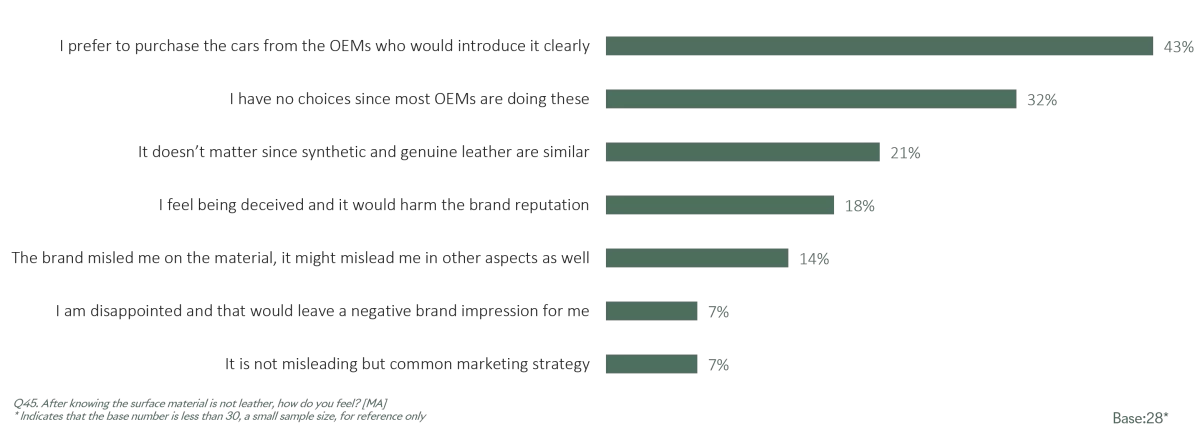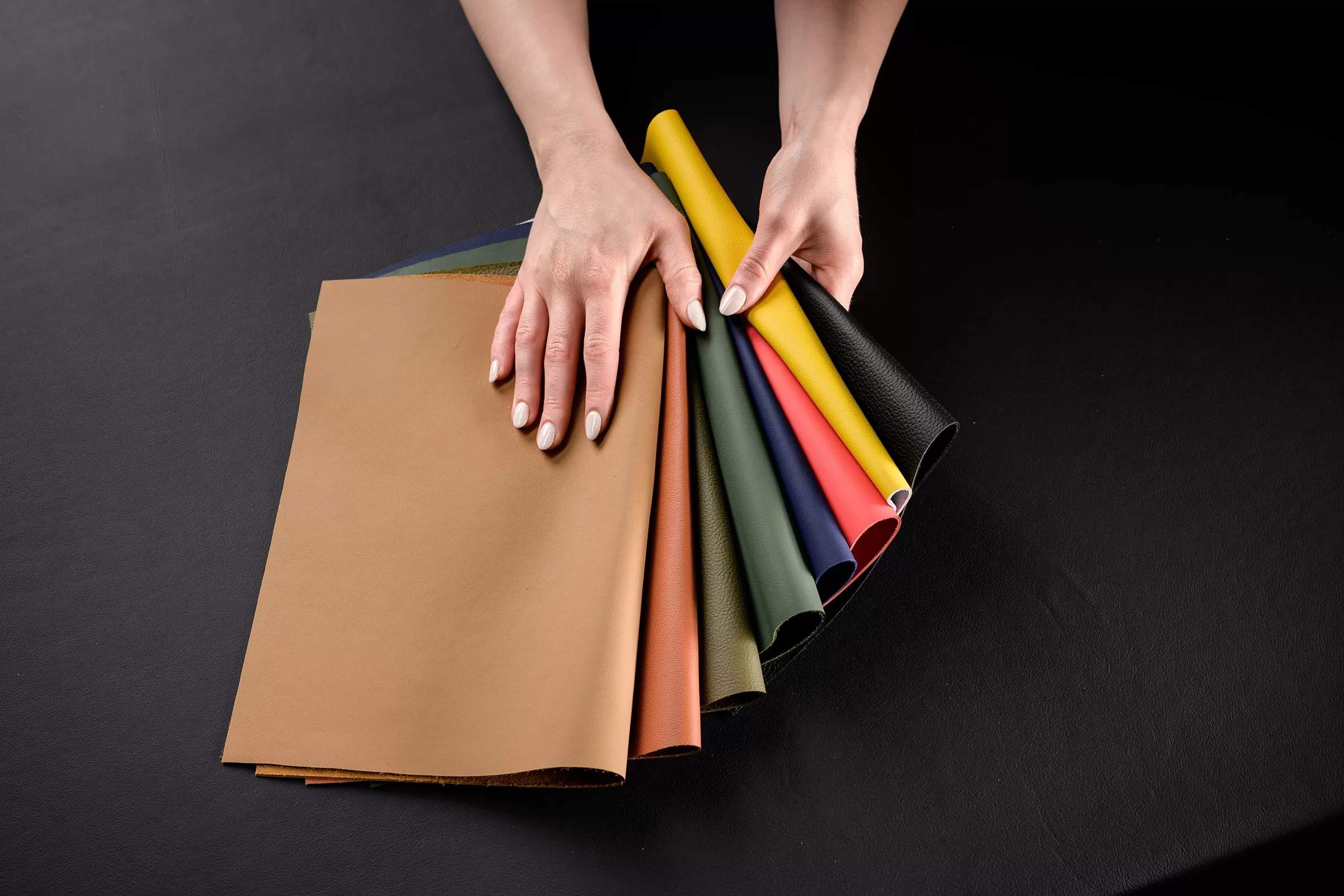
Automotive Leather Study
U.S. MARKET
 Nielsen Introduction
Nielsen Introduction
Nielsen Is The Best Performing Customer Insight and Market Monitoring Company with International Reputation.

- Nielsen founded in 1923 by Arthur Charles Nielson, one of the founders of the modern market research industry.
- After nearly a century of development, Nielsen has spanned above 100 countries around the world, with its headquarter in New York, and has domestic regional operation centers in America, Europe, Oceania, Asia, Africa and Middle East.
- Nielsen has more than 34,000 employees worldwide.
- Nielsen is listed on the NYSE and has a global operating income of $6.498 billion in 2019.
 Background and Objectives
Background and Objectives
Pangea carried out the 2020 Automotive Leather Study to collect crucial insights about consumers’ knowledge, preference, and perception on surface materials of car seats.
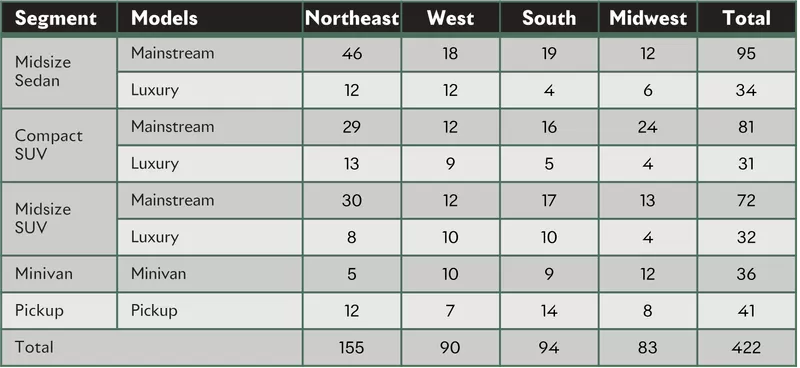
Research Objectives
- To understand whether consumers really know what surface material (leather or synthetic) it is.
- To find out what surface material the consumers is preferring.
- To explore the price premium for leather upgraded from synthetic.
- To discover the interaction between consumers and dealers.
- To obtain the design category preference from consumers.
Methodology
- Quantitative: Online Panel
- FW period: 2nd to 16thJuly 2020;
- Coverage: U.S. Nationwide
 Vehicles Sample Coverage
Vehicles Sample Coverage
Example Models of Eligible Vehicles
U.S Market
Mainstream Mid-Size Sedan
- Hona Accord
- Nissan Altima
- Ford Fusion
- Chevrolet Malibu
- Kia Optima
Mainstream Compact SUV
- Hona CR-V
- Chevorlet Equinox
- Nissan Rogue
- Subaru Forester
- Ford Escape
Mainstream Compact SUV
- Jeep Grand Cherokee
- Ford Edge
- Subaru Outback
- Hona Pilot
- Chevorlet Blazer
Minivan
- Toyota Sienna
- Dodge Grand Caravan
Luxury Mid-Size Sedan
- Lexus ES
- MB E-Class/ CLS-Class
- BMW 5 Series
- Audi A6
- Lincoln MKZ
Luxury Compact SUV
- Lexus NX
- Cadilac XT4
- Lincoln MKC/Corsair
- MB GLA-Class
- BMW X1/Audi Q3
Luxury Midsize SUV
- MB GLC-Class/ LExus Rx
- Audi Q5
- Volvo XC60
- Cadilac XT5
- Infiniti QX50/BMW X3
Pickup
- Ford F-150/ Ranger / Ram 1500
- Chevrolet Silverado/ Colorado
- Toyota Tacoma/ Tundra
 Surface Mateial Preference
Surface Mateial Preference
52% of conumers prefer leather as a surface material due to leather’s softness and comfort 59%.
59% of consumers also deem leather as easy to clean and maintenance.
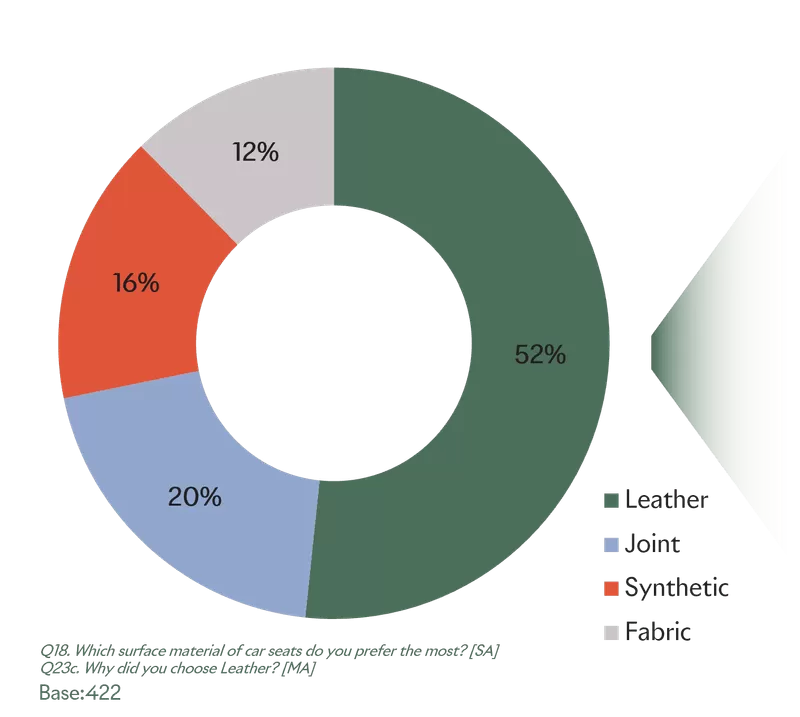
 Purchase Consideration
Purchase Consideration
When purchasing a car, consumers in U.S. considered Seats more than Roominess and Features. Seat Comfort 70% is the top consideration, followed by Surface Material 61% and Seat Design 60%.
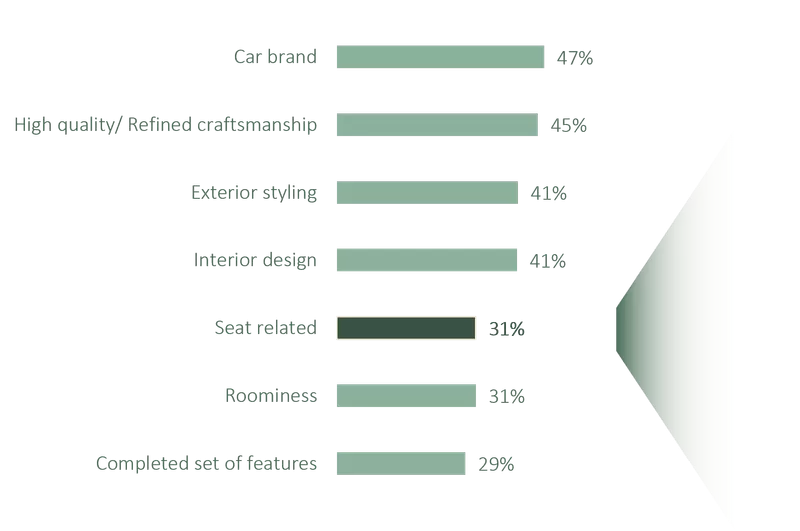
 Interior Description
Interior Description
Comfortability is the best preference description for consumers’ ideal car interior. Followed by Luxury and Simplicity.
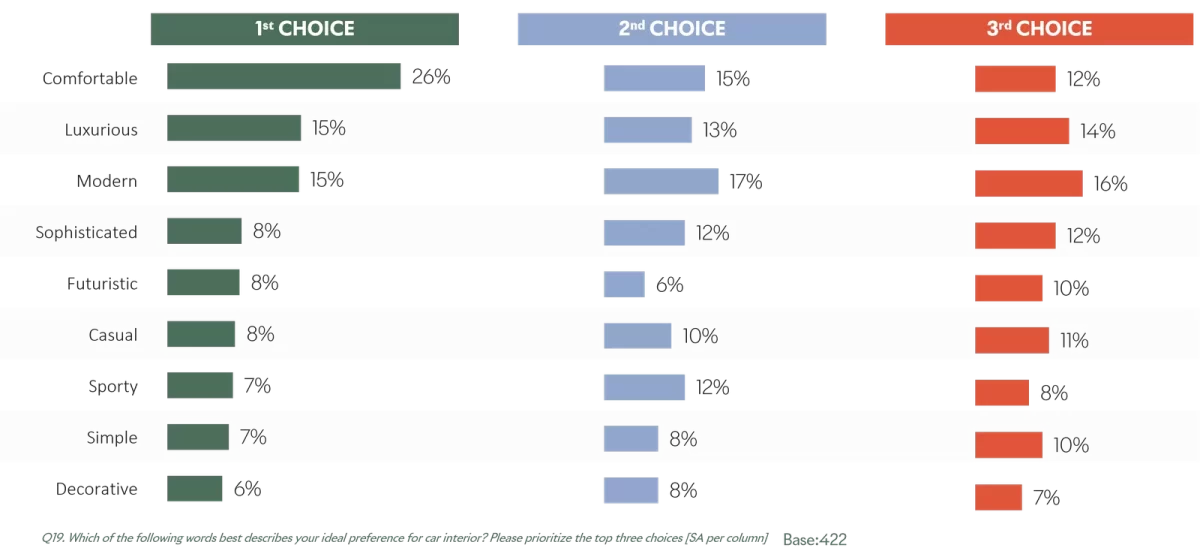
Next Car Seating Material
82% of consumers would likely purchase Leather Seats for their next car.
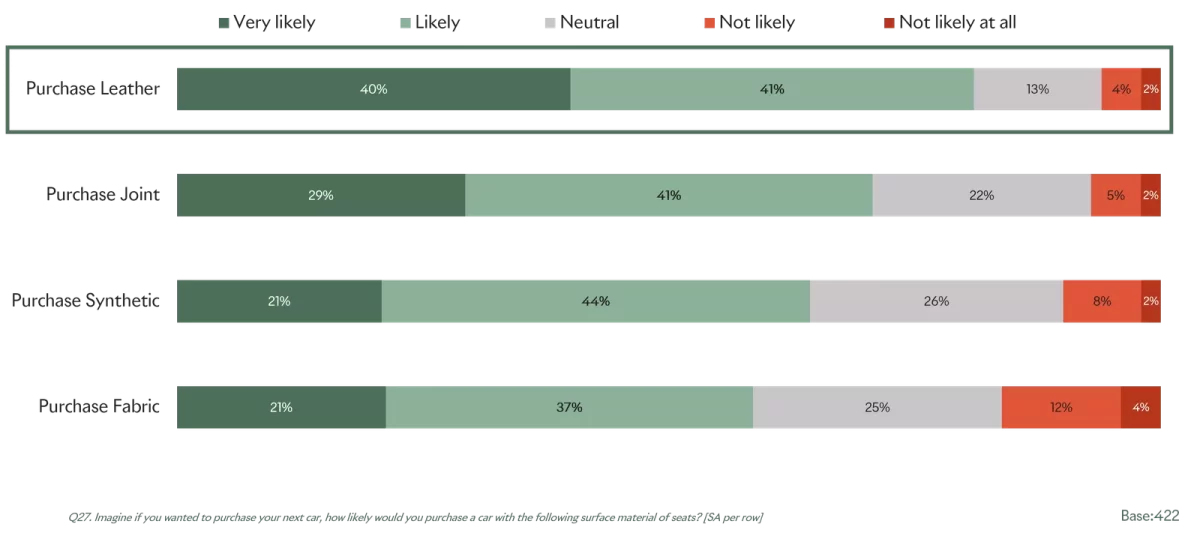
Next Car Seating Material – Actual
In their next car purchase, the likeness for leather is higher than any other surface material.
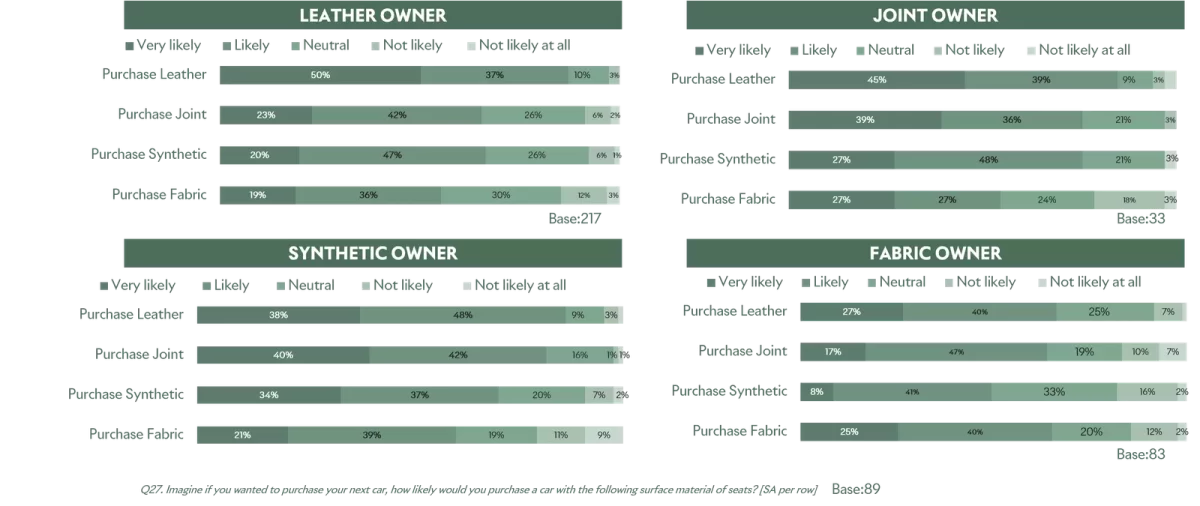
 Necessary to Equip Leather Seat
Necessary to Equip Leather Seat
Consumers deem higher segments more necessary to equip leather seats, especially for luxury brand. Consumers think if the car price is above USD 39.8K then it is necessary to have leather seats.
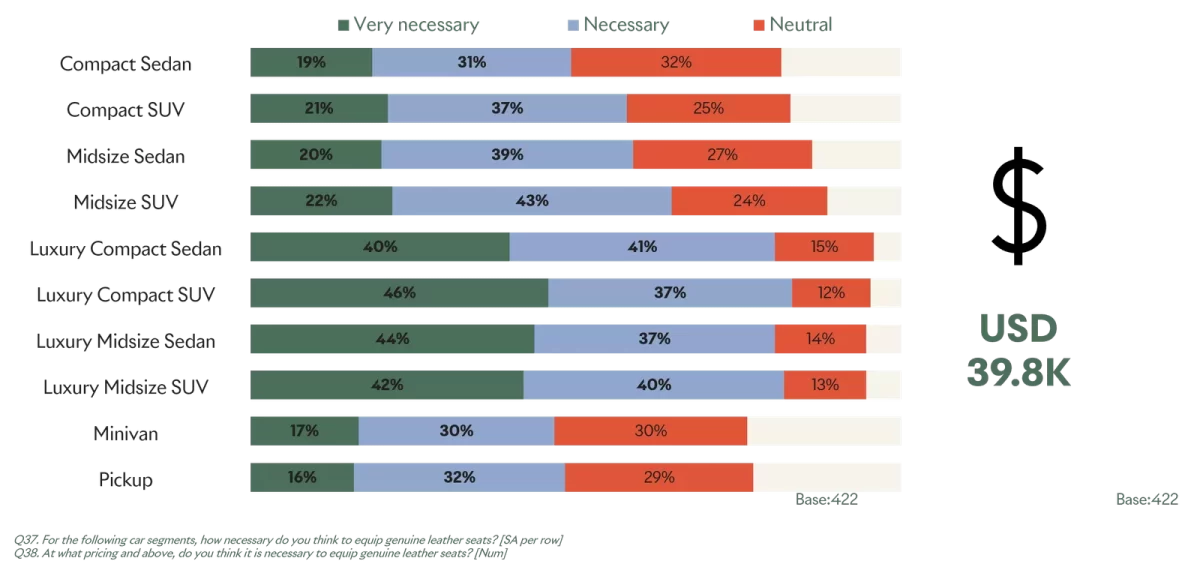
 Satisfaction for Current Surface Material – Perceived
Satisfaction for Current Surface Material – Perceived
Overall satisfaction of Leather is the highest. Leather performs best in material quality.
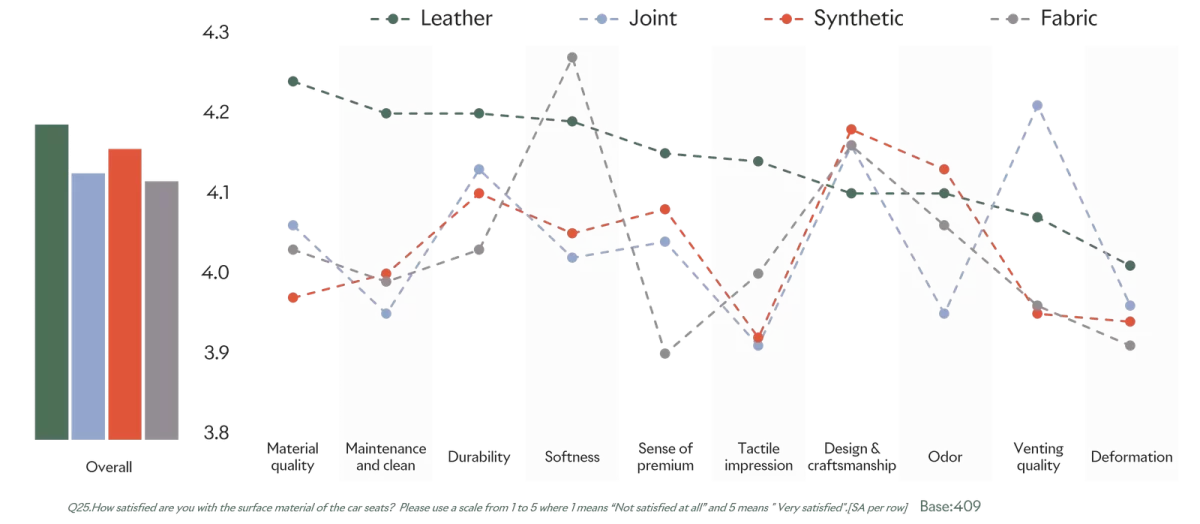
Surface Material Recognition
64% of consumers can recognize their surface material correctly. 33% of Synthetic owners perceived the material as Leather.
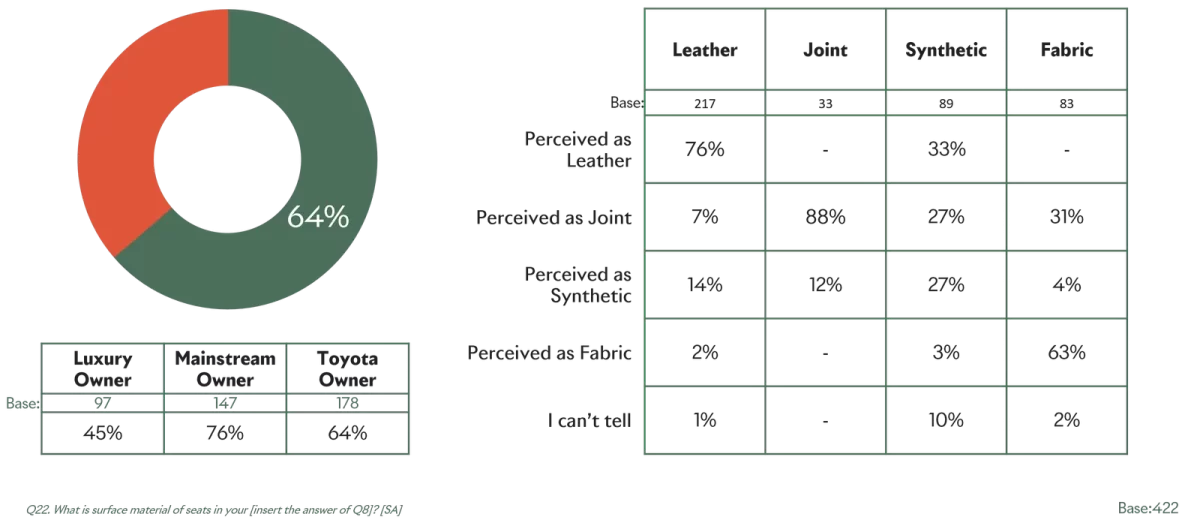
Awareness about the Naming
Nearly half of consumers assume these synthetic materials are leather.
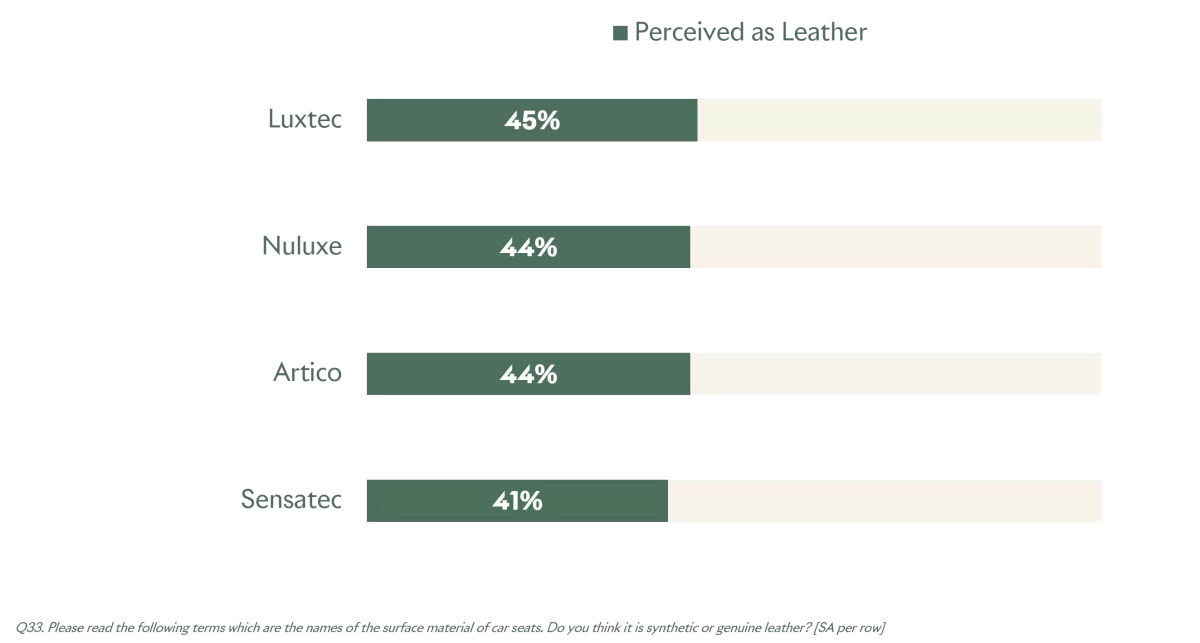
Definition for Leather Seat
74% consumers were aware of the truth that Leather Seats were not fully covered by leather. A so-called leather seat should be covered by leather from at least 69% of their perspective.
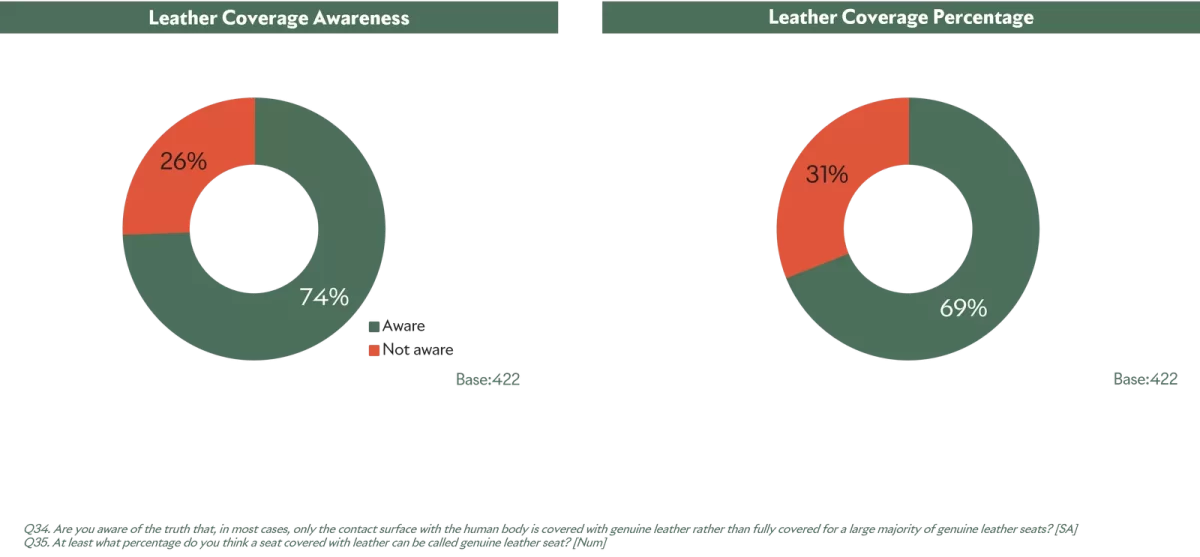
Definition for Leather Seat
Areas which contact the human body (Backrest and Middle Cushion) are highly necessary to be covered by leather.
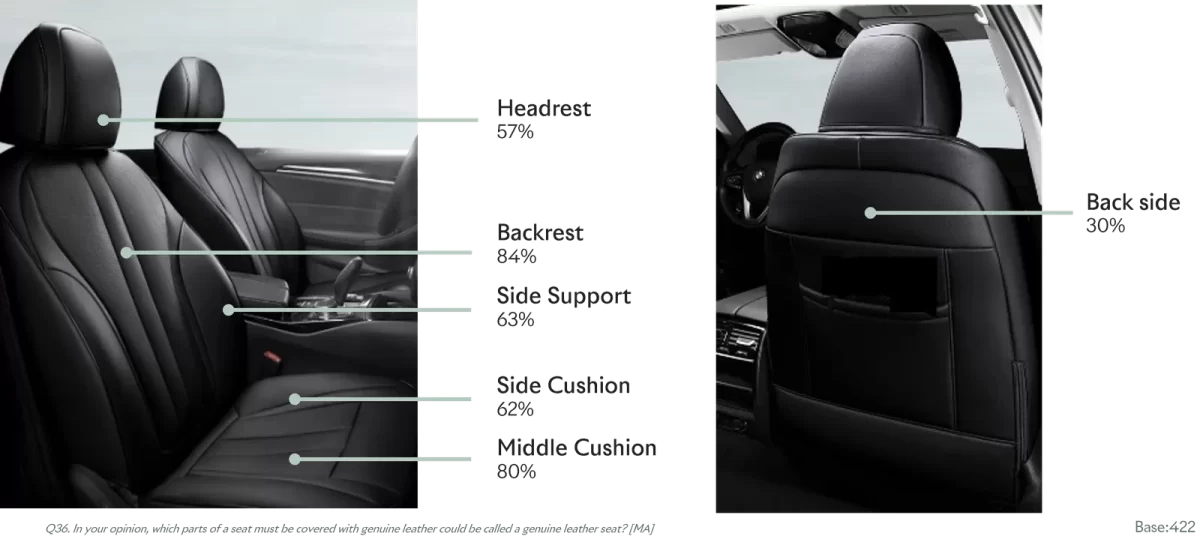
Know and Confirm the Surface Material
32% of consumers know the material at the beginning of their purchase from the Internet, OEM official website, social media, or auto info websites.
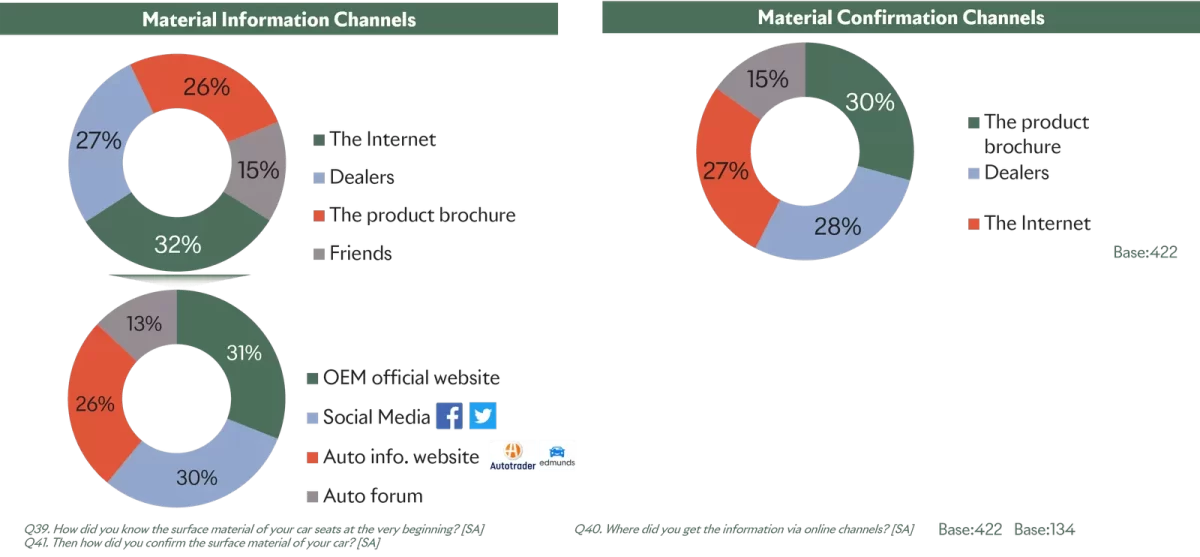
Consumers’ Reaction after Discovering Not Leather
33% of synthetic owners discovered their seats are not leather (previously deemed as originally equipped leather). 7% of consumers would definitely leave the brand and 58% would probably consider other brands more for their next car.

Expectations on Seat Introduction
75% of dealers introduced clearly about the seat surface materials. 16% of introductions were not clear. Consumers hope dealers tell them more professional information and if it is synthetic or leather.
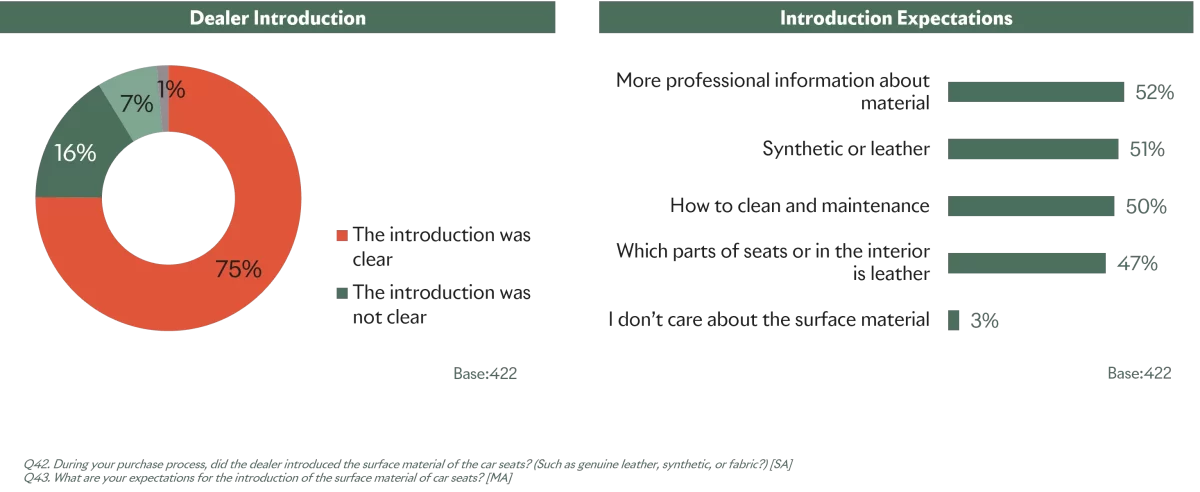
Consumers’ Feeling after Discovering Not Leather
43% of consumers prefer to purchase the cars with a clear introduction. Less than 20% consumers have a little emotions but no choices 32%.
